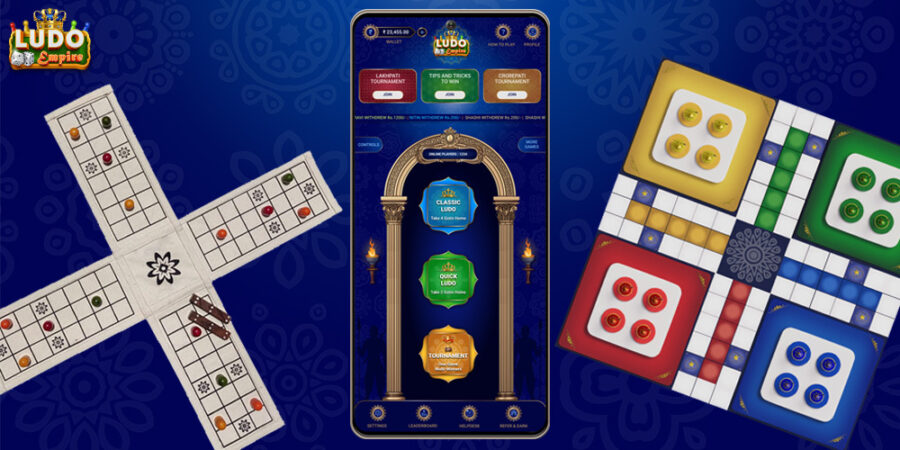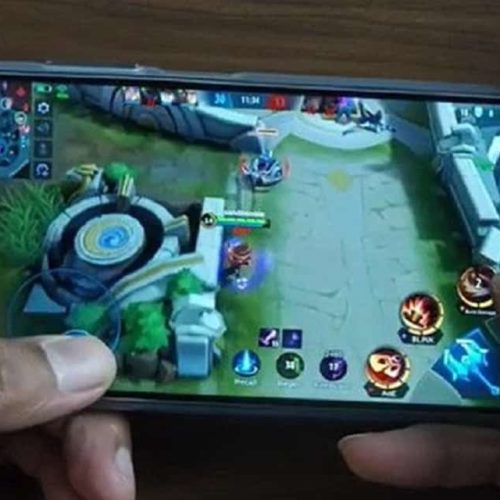In the rapidly evolving landscape of digital entertainment, where high-definition graphics and complex gameplay mechanics often dominate the scene, there’s an enduring charm in the simplicity of traditional board games. One such game that has stood the test of time and continues to bring joy to people of all ages is Ludo. Beyond its surface simplicity lies a game that not only entertains but also fosters a strong social aspect that brings friends and families closer together.
The Classic Game with Modern Allure
Ludo, derived from the Latin word “ludo” which means “I play,” traces its origins back to the ancient Indian game of Pachisi. It’s a game that encapsulates the essence of friendly competition, strategic thinking, and the joy of spending quality time with loved ones. In the digital age, Ludo has effortlessly transitioned into the virtual realm, thanks to a multitude of mobile apps and online platforms, allowing players to engage in matches regardless of geographical barriers.
The game has even expanded into different domains of gaming, the biggest of which is the domain of ludo online cash games for players who like to venture into the world of real money ludo games to enjoy and win special benefits with their classic ludo gaming.
Connecting Across Distances
The advent of multiplayer online Ludo has brought friends and families closer together, even when they’re miles apart. In an era where people often find themselves separated by work, study, or other commitments, Ludo provides a digital bridge to reconnect. With just a few taps, you can invite friends or family members to a virtual Ludo match, recreating the same laughter-filled evenings you used to share around the physical board.
Whether it’s a quick game before bedtime or a scheduled Ludo night, the multiplayer aspect of the game enables everyone to participate in the fun, regardless of their physical location. It’s a testament to how technology can enhance the social fabric that binds us.
Fostering Healthy Competition
At its core, Ludo is a game of strategy and chance. It’s not just about rolling the dice and moving your pieces; it involves analyzing the board, anticipating your opponents’ moves, and making strategic decisions to outmaneuver them. This competitive element adds a layer of excitement that’s further amplified when playing against friends and family.
Friendly rivalries emerge, and the banter flows as players try to outwit each other. Whether it’s blocking an opponent’s path or narrowly escaping capture, these moments create a unique form of bonding that only multiplayer games can offer. The beauty lies in how, despite the competitiveness, the ultimate goal is not just to win but to share moments of joy and interaction.
Nurturing Teamwork and Collaboration
Ludo isn’t limited to free-for-all matches. Many online platforms also offer team-based modes where players can form partnerships and work together to achieve victory. This introduces a collaborative element that’s all about communication and coordination. In a world where effective teamwork is a valuable skill, multiplayer Ludo acts as a training ground disguised as entertainment.
Team-based Ludo requires players to strategize not only for their individual benefit but also for the success of their team. This encourages players to think collectively, consider their partner’s moves, and make decisions that will maximize the team’s chances of winning. It’s a wholesome way to teach collaboration and problem-solving in a low-pressure, enjoyable environment.
The Chatting Advantage
Modern online Ludo platforms don’t just stop at enabling gameplay. They often incorporate chat features that allow players to communicate during matches. This transforms the gaming experience into a virtual hangout where you can catch up, share anecdotes, and even plan future gatherings. It’s gaming evolving into a platform for meaningful conversations and social interactions.
The chat feature also adds a layer of unpredictability. Whether it’s a playful taunt after capturing an opponent’s piece or a triumphant message upon reaching the finish line, these interactions inject personality and human connection into the game.
Conclusion
Ludo, in its digital avatar, is more than just a game; it’s a tool that brings people together. Its multiplayer functionality transcends the barriers of distance and time, fostering connections and memories that last. As the world becomes increasingly digital, the enduring social aspect of Ludo serves as a reminder that, at the heart of it all, we yearn for the simple pleasures of laughter, camaraderie, and shared moments of fun. So, the next time you’re huddled over a virtual Ludo board and play Ludo with real money India or for free with your friends or family, relish not just the game but the precious bonds it strengthens.



